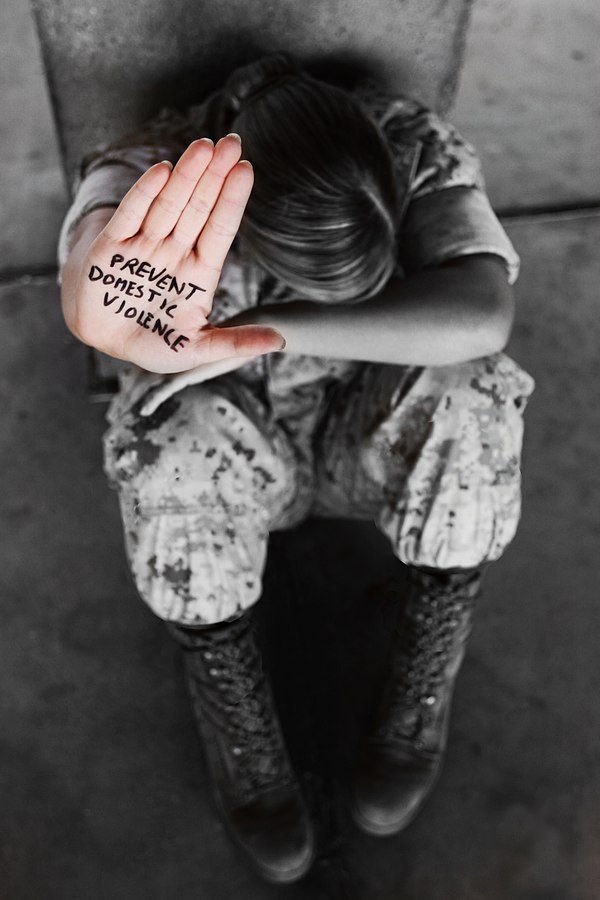We need to be aware of red flags and warning signs

Relationship abuse is real, as we can see in the Gabby Petito case that is getting national attention. There is a lot of discussion going on right now about relationship abuse.
If there’s anything I can do to help, it would be to give you the National Domestic Violence Hotline number, 1-800-799-7233. I am also here to inform you on red flags in relationships, as well as warning signs of relationship abuse.
You might be wondering whether the relationship you are in is full of red flags or if you are missing the warning signs of relationship abuse, I got you.
According to New Hope, a site dedicated to creating communities free from violence and exploitation, relationship abuse and signs include extreme jealousy, controlling behavior, unrealistic expectations, isolation, blaming others, verbal abuse and the use of violence or threats of violence.
Extreme jealousy might include the abuser questioning the victim about who they talk to. The abuser could accuse them of being flirty with others or even refuse to let the victim go to work or school for fear of meeting someone else.
Extreme jealousy can also include the abuser being jealous of their partner’s time spent with friends, family or children. If your partner is being extremely jealous, it might be time to pay attention and notice other warning signs, such as controlling behavior.
New Hope says that controlling behavior can include the abuser making relationship rules and decisions, like constantly checking their partner’s phone to see what they are doing or if they are talking to someone else. The abuser might also try to control finances, how their partner dresses, who they can and can’t talk to or where they can and can’t go. But relationship abuse doesn’t end at controlling behavior and extreme jealousy.
Relationship abuse can go into unrealistic expectations. According to New Hope, unrealistic expectations from the abuser might be expectations to meet all the abuser’s needs and to “be perfect.” The abuser could also say things such as, “If you love me, then I’m all you need.” If your partner has unrealistic expectations, it might be time to end the relationship. There are other warning signs as well.
“By just being aware of relationship abuse, you could save a life.”
According to New Hope, abusers like to isolate the victim from everyone else. As an example, the abuser may keep the victim from seeing friends and family, as well as putting down everyone that the victim knows. The abuser doesn’t stop there.
The abuser is likely to blame others for their problems. New Hope says the abuser does not like to take responsibility for their troubles and is likely to blame others for their problems. If your partner is blaming you for their issues and isolating you from those you love, it is a toxic relationship.
While speaking about toxic relationships, verbal abuse, use of violence and violent threats are more warning signs of relationship abuse. Verbal abuse can include the abuser saying cruel and hurtful things to their victim. The abuser could call them names, make fun of them, not believe in them or put their victim down when they are excited about their accomplishments. Never ever be with someone who puts you down or has rude comments to say to you.
The use of violence and violent threats could include the abuser hitting, pushing, holding the victim down or restraining them from leaving the room, says New Hope. If the use of violence or violent threats ever happens in a relationship, talk to a family member, someone you trust or campus law enforcement.
Relationship abuse does not end at warning signs. There are also red flags in relationships that could be abusive. According to the Center for Relationship Abuse Awareness, if you answer yes to any of the following questions, there is a pretty good chance that you’re in an abusive relationship.
Questions created by the Center for Relationship Abuse Awareness include:
- Are you scared of disagreeing with your partner?
- Does your partner criticize you or humiliate you in front of other people?
- Are you nervous around your partner?
- Do you have to be careful to control your behavior to avoid your partner’s anger?
- Does your partner ever make you feel like you are wrong, stupid, crazy or inadequate?
If you answered yes to these questions, I highly recommend talking to someone you trust or call the National Domestic Violence Hotline. Again, the National Domestic Violence Hotline is 1-800- 799-7233.
Gabby Petito was a 22-year-old who vanished while she was on a cross-country trip with her fiancé, Brian Laundrie, when she disappeared. This could have happened to anyone. How scary is that?
According to the Center of Disease and Prevention, one in three women experience intimate partner violence. Let’s be more aware of relationship abuse, the warning signs and the red flags. By just being aware of relationship abuse, you could save a life.
